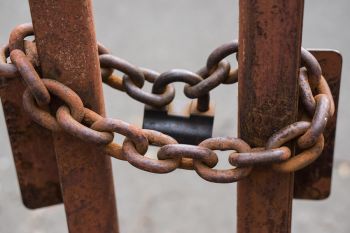What to Expect in Maryland Rent Court
 You’ve received notice that you’re expected to appear in rent court, so where do you go from here? It’s important to understand the rent court and eviction process if you are a tenant facing eviction.
You’ve received notice that you’re expected to appear in rent court, so where do you go from here? It’s important to understand the rent court and eviction process if you are a tenant facing eviction.
The Eviction Process
If any tenant fails to pay rent in a timely fashion and according to the terms defined in the lease, a landlord can ask the court to approve the eviction. This step must be taken before the landlord can lock out a tenant or force them out by turning off the utilities. The eviction process can be started the day after rent has not been paid by filling out a “Failure to Pay Rent” form.
If You’ve Received an Eviction Notice
Within 3 days of the landlord filing a complaint with the court, the tenant will receive a “summary ejectment proceeding” that lets them know where they need to appear and when. In accordance with Maryland state law, a tenant can make payments to the landlord at any time before trial or during the trial.
Your Court Appearance
If you choose to challenge the eviction, you should work with a lawyer to develop a case of why the eviction is not legal and gather supporting evidence. Supporting evidence can take a variety of forms, including a copy of the lease, canceled checks, photographs of the property or electronic communications with the landlord. If the tenant fails to appear, the landlord will almost always be granted the eviction. If the landlord does not appear, the eviction will almost always be dismissed.
Your Defense
Depending on the situation, you might have a variety of defense options. If a tenant can demonstrate that a landlord is attempting to evict them to retaliate for a complaint, lawsuit or membership in a tenant’s organization, the eviction is not legal.
Tenants can also defend themselves if there is a dangerous defect in the property. If a tenant can prove that they gave at least a month’s notice to their landlord about a serious safety condition and it did not get repaired, a case can be made that the tenant did not have a duty to pay rent. What constitutes a dangerous defect?
- No heat during the fall or winter months
- Broken toilets
- Rat infestation
- Serious problems with walls, floors, ceilings or the structure itself
- Lead paint
- Asbestos
- Fire hazards
It’s important to develop your case with the help of a skilled attorney from a law firm like Lebovitz Law. Landlord and tenant disputes can rapidly become length, expensive cases without the right mediation. Lebovitz Law has years of experience representing both landlords and local tenants, and we know how to get the best deal for our clients. Contact us today.
